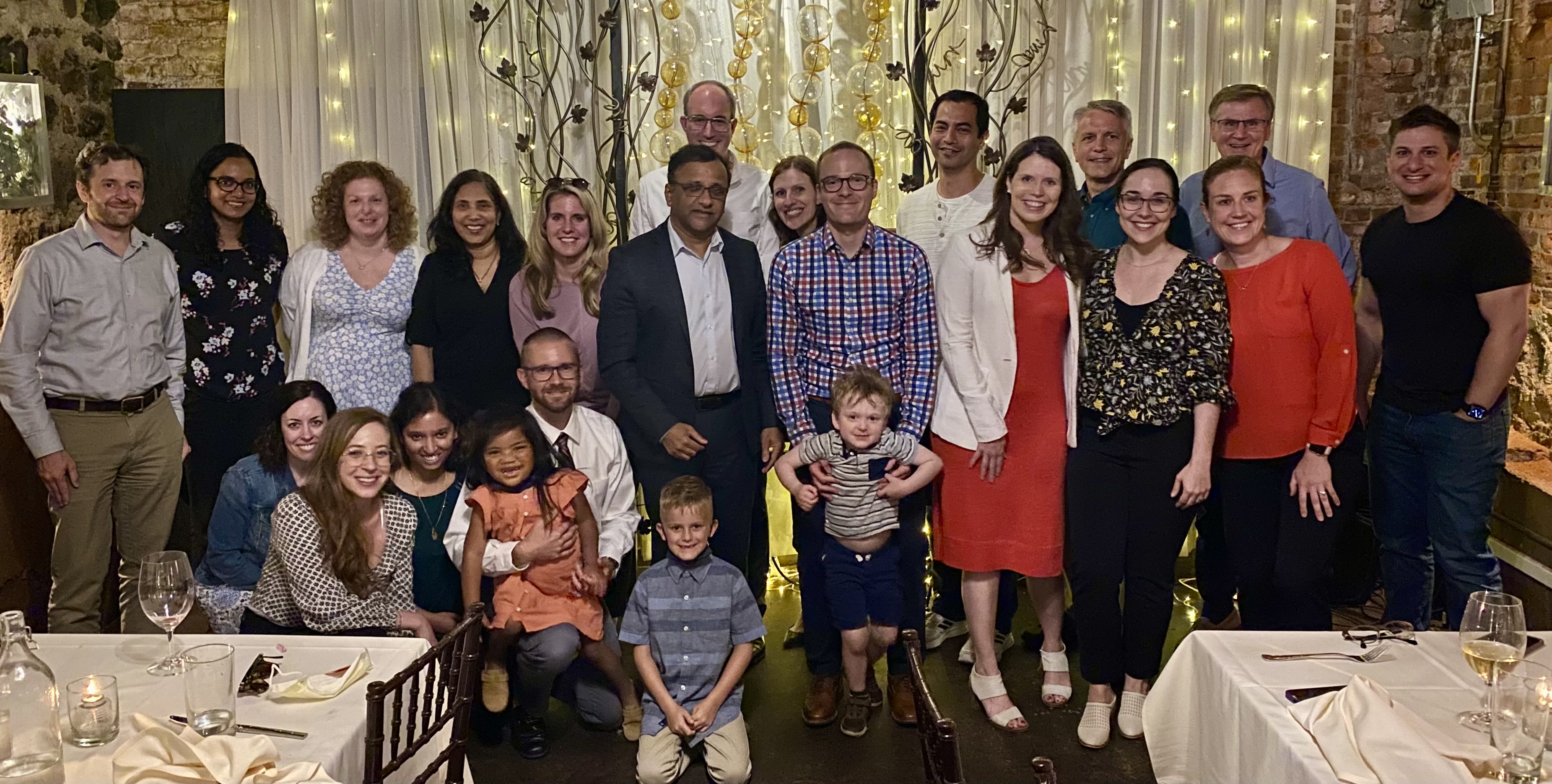
Leadership:
Division Chief:
Rajen Mody, M.D., M.S.
Fellowship Program Director:Andrea Franson, MD, MS
Associate Fellowship Program Director:
Mark Vander Lugt, MD
Fellowship Training Grant (T32) Director:
Jordan Shavit, M.D., Ph.D.
Fellowship Training Grant (T32) Associate Director:
Sung Won Choi, M.D., M.S.
View a list of our current fellows.
The University of Michigan offers highly competitive salaries and tremendous benefits to our residents/fellows. An overview of salary, benefits and employment eligibility is available on the GME Office website, under “Prospective Residents/Fellows.”
https://medicine.umich.edu/medschool/education/residency-fellowship
Why consider Michigan for your Fellowship?
The University of Michigan and C.S. Mott Children’s Hospital are recognized leaders in translating state-of-the-art research to clinical care for children and young adults with hematologic-oncologic disorders. We are a tertiary medical center offering both precision-based medicine and targeted therapeutics (e.g, MIBG therapy, CAR T-cell therapy) to our patients; our genomic sequencing program is internationally recognized. We are the only program in the state designated as a COG Phase I Center for novel therapeutic agents and home to one of the fastest growing and largest pediatric brain tumor programs in the nation, the Chad Carr Pediatric Brain Tumor Center, with specific expertise in diffuse intrinsic pontine glioma (DIPG) and other high-grade gliomas. Our faculty are recognized for their expertise in a wide array of non-malignant and malignant disorders with dedicated research programs in neuro-oncology, neuroblastoma, precision oncology, transplantation / cellular immunotherapy, coagulation disorders, immuno-hematology and hemoglobinopathies.
The University of Michigan Pediatric Hematology and Oncology (PHO) Fellowship is a three-year program that is specifically oriented toward individuals who will pursue academic careers in hematology, oncology, or Blood and Marrow Transplant and Cellular Therapy or assume leadership positions in clinical practice. Clinical activities occur in one of the leading children’s hospitals in the United States as well as the Rogel Cancer Center, a leading NCI-designated comprehensive cancer center. The extraordinarily rich research environment, with faculty from departments and institutes throughout the university, provides virtually unlimited opportunities for young scholars in this discipline. The PHO Training Program lays the foundation for outstanding future careers, and its graduates become division chiefs, department chairs, leaders in national societies and pioneers who advance both clinical and basic research. Applicants should be dedicated to a career in academic medicine with the intent to develop a career in bench or translational science research in hematology-oncology/BMT/cellular therapy.
A growing number of Michigan Medicine off-site locations, as well as partnerships and joint ventures with other institutions, extend the range of training options both regionally and internationally.
Who are we?
- 24 faculty members dedicated to research, patient care and fellow education
- 15 nurse practitioners to support patient care
- Dedicated Clinic Nurses, social workers, pharmacists, nurses, research coordinators and child life specialists
What do we do?
- Over 100 new oncologic diagnoses per year
- Over 600 admissions to our inpatient unit per year
- Approximately 50 stem cell transplants and cellular therapies per year
- Phase I program
- Neuro-oncology Program
- Immunohematology Program
- Sickle cell/Hemoglobinopathy Program
- Hemophilia and Coagulation Disorders Program
- Bone Marrow Transplant
What makes us unique?
- COG Phase I Program
- One of 20 national BMT CTN (Bone Marrow Transplant Clinical Trials Network) Core Sites
- Leading National Genomic Sequencing Program
- Inventor of MIBG Therapy for Neuroblastoma
- National leaders in basic science research in:
- Genomic sequencing
- Bleeding/thrombotic disorders
- Neuro-oncology
- Nanotechnology
- Transplant immunobiology
- Cancer Immunotherapy
- Faculty with national and international reputations as principal investigators in COG, PBMTC, ASCO, and BMT CTN studies and with leadership positions in COG, PBMTC, ASCO, CIBMTR, NHF, and HTRS
- One of the top sites internationally for gene therapy for Hemophilia
- Non-malignant stem cell transplants for conditions such as sickle cell anemia, congenital neutropenia and other immune deficiencies
- Immunohematology Program run through Pediatric Hematology/Oncology and Bone Marrow Transplant
How to Apply
Thank you for your interest in the University of Michigan's Pediatric Hematology/Oncology Fellowship Program. Applications are accepted through ERAS.
NIH/NHLBI-funded T32 Boxer Training Program in Molecular and Translational Hematology
A significant number of patients with hematologic diseases, both benign and malignant (e.g. neutrophil and inflammatory disorders, leukemia/lymphoma, coagulation disorders, sickle cell disease) continue to have poor outcomes. An improved understanding of the molecular pathophysiology underlying these diseases, and incorporation of this knowledge into clinical trials, will lead to novel therapeutic approaches. The late Dr. Laurence Boxer was Division Chief of Pediatric Hematology/Oncology from 1982 until 2008 and established this T32 supported Training Program at the University of Michigan. The Boxer Training Program in Molecular and Translational Hematology relates to the need to better understand and translate the molecular basis of hematologic diseases. Accordingly, the strategic objective of this training program is to continue to produce the next generation of scientific investigators who will carry out this mission. In order to enhance the likelihood of developing new treatment modalities, interested fellows will be trained for research careers in pediatric hematology. The Training Program will provide two or more years of intensive postdoctoral research training using an individualized and closely mentored program designed to fit each trainee’s skills and interests, from laboratory basic science to translational pursuits.



